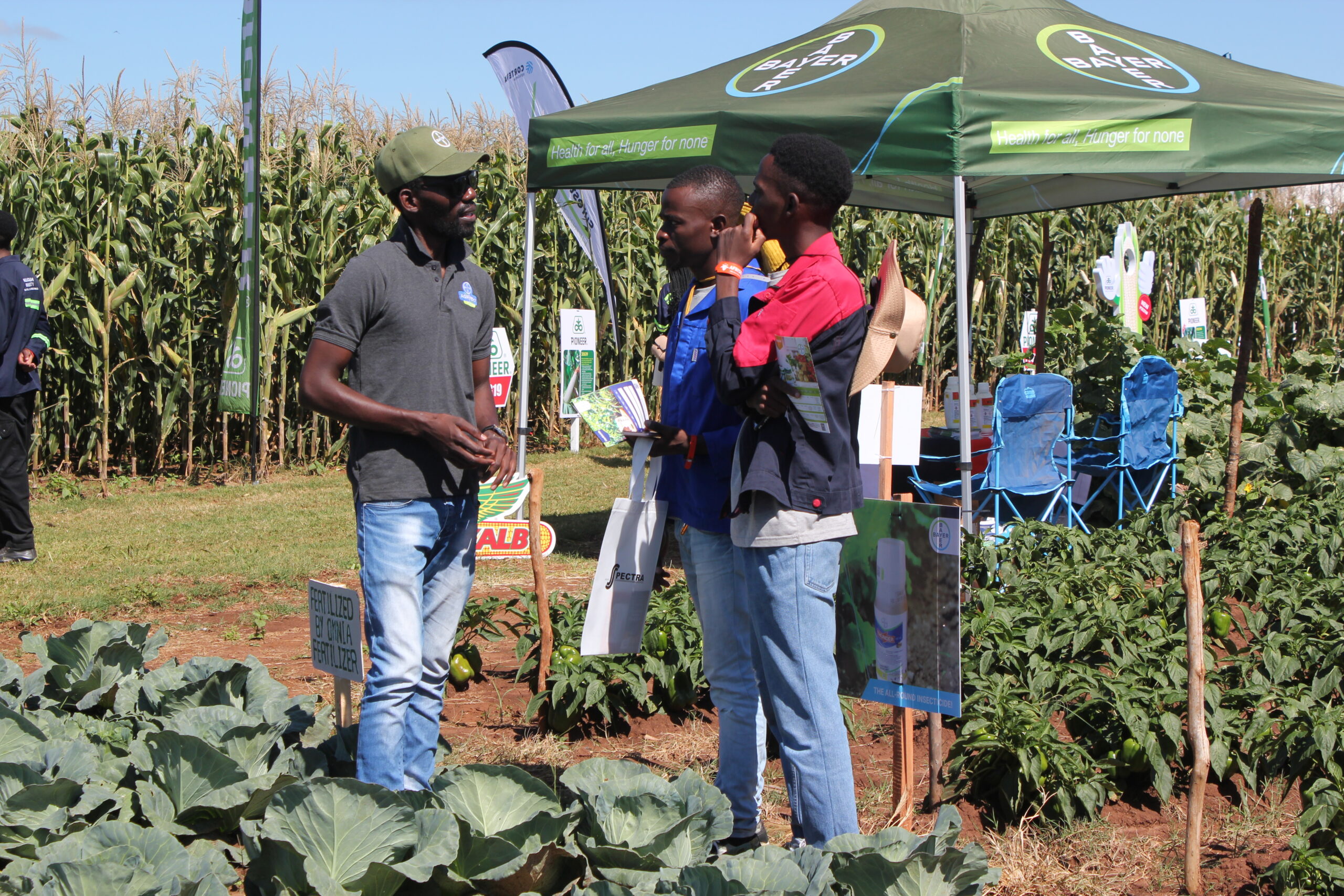Bayer strives to provide farmers with what they need to thrive in their area. Many of Bayer’s Dekalb maize cultivars are, for example, drought tolerant which is very important in a country like Zambia.
At the AgriTech Expo 2024 in Zambia Bayer showcased their different cultivars and crop protection solutions for farmers. The AgriTech Expo gives farmers the opportunity to see for themselves why they should choose Bayer’s Dekalb products.
Crop protection
ProagriMedia visited their stand and learnt a lot about Bayer’s crop protection products that farmers can use after planting to help with insects and diseases.
“Farmers need something that protects their crops against stress. Due to high temperatures crops tend to lose water causing stress. The product Folicur® helps with water loss and diseases,” says Hamakona Munjile, Bayer Sales Officer.
It is a systemic fungicide emulsion, oil in water for the control of diseases like crown rust, leaf rust, eye spot, leafspot, and net blotch.

The tomatoes in Bayer’s crop patch received a clean bill of health thanks to their crop protection programme.
Hamakona showed their tomato garden at the AgriTech Expo. “As you can see these tomatoes are clean from diseases. Directly after planting we applied Confidor®.”
Confidor® is a systemic water dispersible granule insecticide for the control of aphids, red scale, thrips, leafminer, and psylla on citrus trees; aphids on cotton, potatoes, cucurbits, tobacco, cruciferae, and roses; woolly aphid on apples, tobacco slug on tobacco, whitefly on tomatoes and mealybug on grapes.
Grain solutions
Dekalb white maize hybrids:
“Dekalb cultivars all have good grain quality,” Hamakona says.
DK7777 (Shoma)
DK7777 Shoma means trust. “Farmers trust that when they plant this variant they will have a good harvest. It is drought resistant and is a medium transitional hybrid maize variety with a yield potential of 8 to 10t/ha. It takes four to five months to reach maturity.
Key strengths:
- High and stable yielder with potential of up to 10 t/ha under good agronomic management.
- Tolerant to Maize Lethal Necrosis (MLN) disease.
- Good tolerance to leaf diseases.
- Double cobbing potential.
- Exceptional good grain texture (flint grain type) good for poundability.
- Strong stem and stands well.
- Uniform cob placement, ease when machine harvesting.
DKC90-89 (Ngao-Ngao)
DKC90-89 (Ngao-Ngao) is a reliable and stable variant. It takes four to four and a half months to mature.
Key strengths:
- High and stable yielder with potential of up to 10 t/ha under good agronomic management.
- Good tolerance to leaf diseases.
- Double cobbing potential.
- Exceptional good grain texture (flint grain type) good for poundability.
- Strong stem and stands well.
DKC80-33 (Tamanga)
DKC80-33 (Tamanga) is a short season variant. To reach maturity takes 3,5 to four months.
Key strengths:
- Double cobbing potential.
- Tolerant to drought and leaf diseases.
- Early maturing.
- Stable yielder with potential of up to 7 t/ha under good agronomic management and widely adapted across environments.
- Strong stem and stands well.
- Drooping of mature ears.
Dekalb yellow maize hybrids:
A new yellow maize hybrid in Zambia called DK7500 was also showcased.
Key strengths:
- Excellent colour and health.
- Maintains high yield and potential.
- High adaptability between environments.
- Maintains a texture and type of semi-crystalline grain.
- 120 days to maturity.
- Cob insertion height is 130 cm.
Visit Bayer in Zambia at Plot 10103, Mumbwa Road, Lusaka, Zambia or contact +26021-128-6451/53 to find out more about their products.












